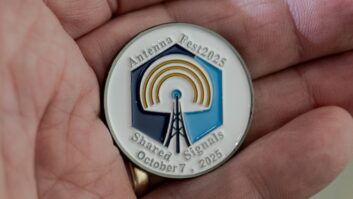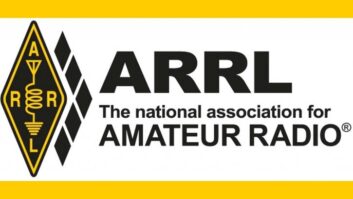An amateur radio operator has reached a settlement with the U.S. Department of Justice and the Federal Communications Commission over intentional interference with other transmissions — and as a result has agreed to pay the U.S. government $7,000.
The FCC and the Office of the U.S. Attorney for the Western District of Pennsylvania found that Brian Crow, an amateur operator, violated the Communications Act and the commission’s rules by causing interference and failing to provide station identification when transmitting.
[Read: FCC Continues Search for Pirate Operations]
According to the FCC, Crow operates amateur radio station K3VR from North Huntingdon, Pa. The commission found that Crow intentionally caused interference to other amateur radio operators and blocked others’ use of the airwaves. FCC Rules require that amateur radio operators not only hold a valid license but also cooperate with one another when using shared amateur radio frequencies. The commission said Crow also failed to transmit his FCC assigned call sign as required by commission rules, a step that allows other amateur operators to identify the source of transmissions on the amateur radio band.
“When a ham radio operator interferes with other operators, the whole amateur radio system is threatened — potentially to the point that it could fall apart,” said Rosemary Harold, chief of the Enforcement Bureau. “Amateur radio licensees know that the rules require them to share the airwaves, which means that bad actors cannot plead ignorance.”
The $7,000 settlement is a significant payment for an individual operator, Harold said. “[It] sends a serious message: Play by the rules in the amateur radio band or face real consequences,” she said.
Crow is also limited to a technician class operating license for the next six months. After that — if no new violations have been found — he will again be authorized to operate with amateur extra operating privileges.
Harold pointed to the efforts of the FCC field agents involved in this case as well as to the U.S. Attorney’s Office for understanding the importance of this type of case, “and pushing it forward to ensure a resolution that included strong penalties for substantial violations of the law,” she said.
The action was a result of the initial Forfeiture Order sent to Crow in 2014 alerting him that his alleged behavior violated the Communications Act and the commission’s rules. That order proposed a penalty of $11,500 against Crow, who had been warned previously in writing by the Enforcement Bureau about causing interference to other amateur radio operators. In response to several complaints of intentional interference from amateur licensees on the frequency 14.313 MHz, in 2014 agents monitored the transmissions emanating from Crow’s station for approximately three hours in the morning and heard him transmit Slow-Scan Television (SSTV) emissions and a prerecorded voice transmission of another amateur station on the frequency. These transmissions prevented other amateur licensees from communicating over the frequency, the FCC said.
Later that day, the agents approached Crow’s residence, identified themselves and requested to inspect the radio station located on the premises. Mr. Crow allowed the agents to inspect the station and they confirmed that it was capable of operating on 14.313 MHz.
At the time, Crow told the agents that he did not operate his amateur radio station that morning and was not home when the interfering transmissions occurred, despite the fact that the agents said they heard him interfering with other amateur licensees. “These transmissions were a deliberate act to monopolize the frequency and prevent other amateur radio operators from conducting legitimate communications,” the FCC said at the time.






